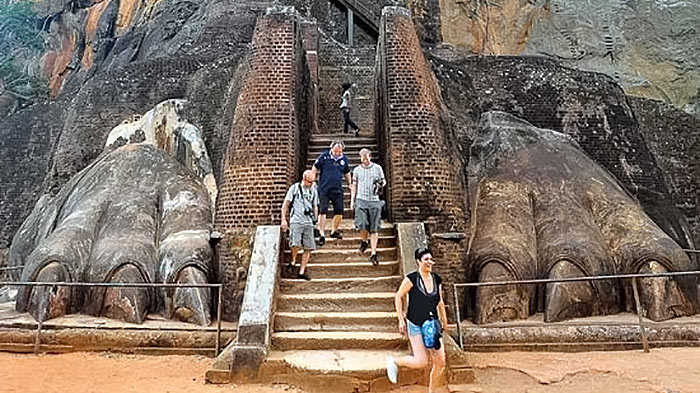Sri Lanka’s Tourism earnings rise despite slower arrivals in September

Sri Lanka’s tourism industry has shown steady progress through September, with both arrivals and earnings improving, despite a slight decline from the previous month.
According to the latest data, Sri Lanka earned US$ 181.0 million from tourism in September 2024, compared to US$ 152.2 million in the same month last year, as the sector continued its recovery toward pre-pandemic levels.
However, earnings in September were at least US$ 100 million lower than in August due to a slowdown in arrivals.
This brought the total earnings for the first nine months of the year to US$ 2,348.0 million, a 61.2% increase compared to the same period in 2023.
In September, 122,140 visitors arrived in Sri Lanka, up from 111,938 a year ago but down significantly from the 164,609 arrivals in August.
This brings the total number of visitors in the first nine months to just under 1.5 million, surpassing the 1,016,256 visitors during the same period in 2023 and approaching the total number of arrivals for all of 2023.
Sri Lanka aims to welcome over 2.0 million visitors in 2024, targeting between US$ 3.0 to US$ 3.5 billion in revenue for the year.
A strong year-end season is expected to help the industry meet these targets.
The recovery of tourism earnings, along with resilient export performance and remittances, has helped Sri Lanka regain stability in its external sector and economy. In early 2022, the country ran out of foreign currency, making it difficult to pay for essential imports such as energy, medicine, and food.
This crisis was triggered by the pandemic, misinformation about foreign reserves, and soaring global commodity prices that increased the cost of imports.
Since coming into power, the new government has restored the previous visa system in response to a court order issued two months ago.
The visa system implemented in April caused significant challenges, including nearly doubling the cost, raising concerns about its impact on tourism, which provides vital foreign exchange for the country to import essential goods like fuel, medicine, and food.

Latest Headlines in Sri Lanka
- Sri Lanka Coast Guard launches 24-hour emergency hotline 106 for maritime safety April 13, 2025
- Sri Lanka President announces plan to restart Kantale Sugar Factory April 13, 2025
- Police shoot at fleeing hijacked car in Kotahena – suspect escapes April 13, 2025
- Large stock of ice and heroin seized at Kudawella harbor in Tangalle April 13, 2025
- CID obtains 90-day detention order on Pillayan April 12, 2025


